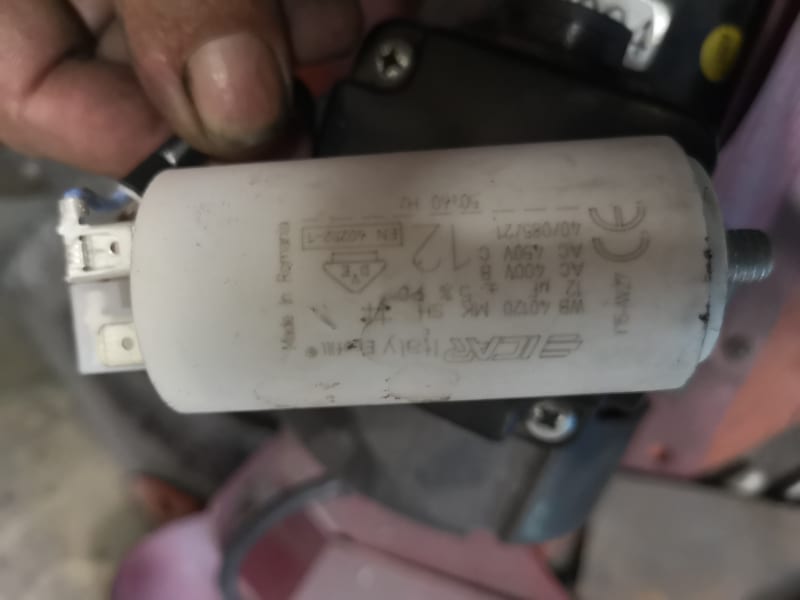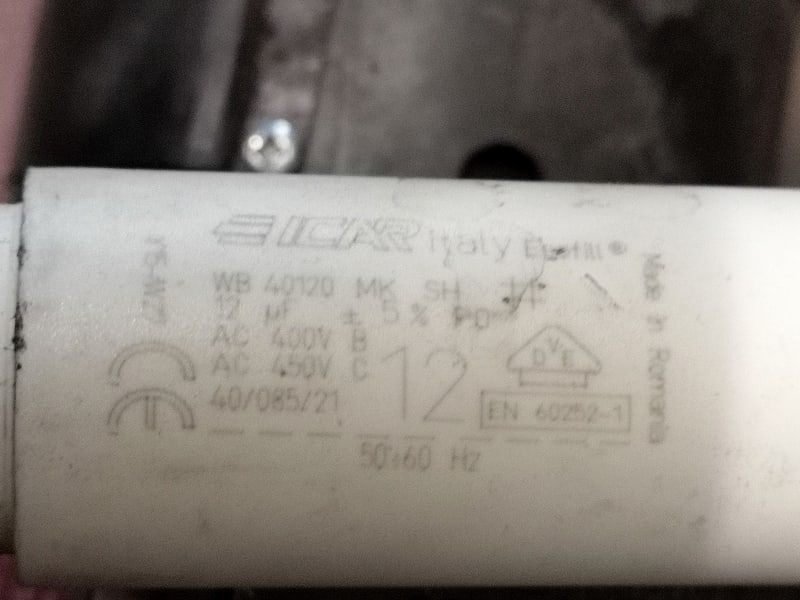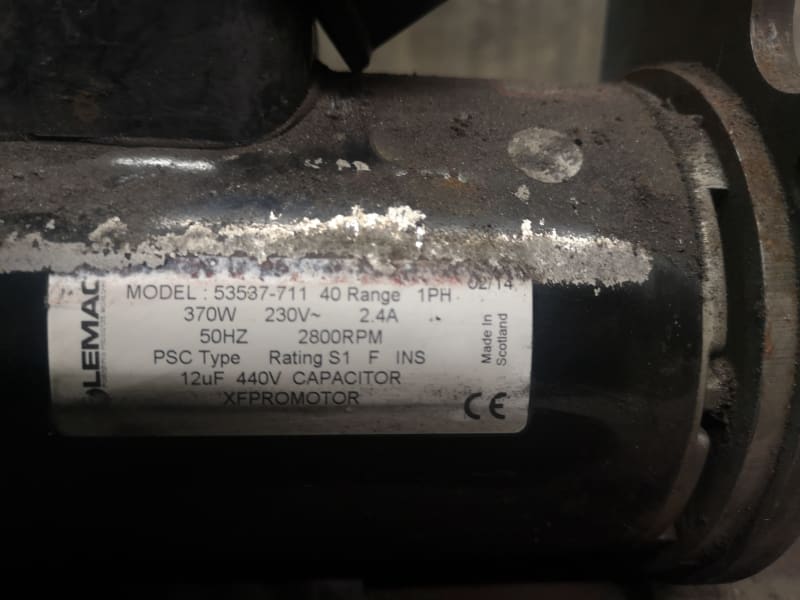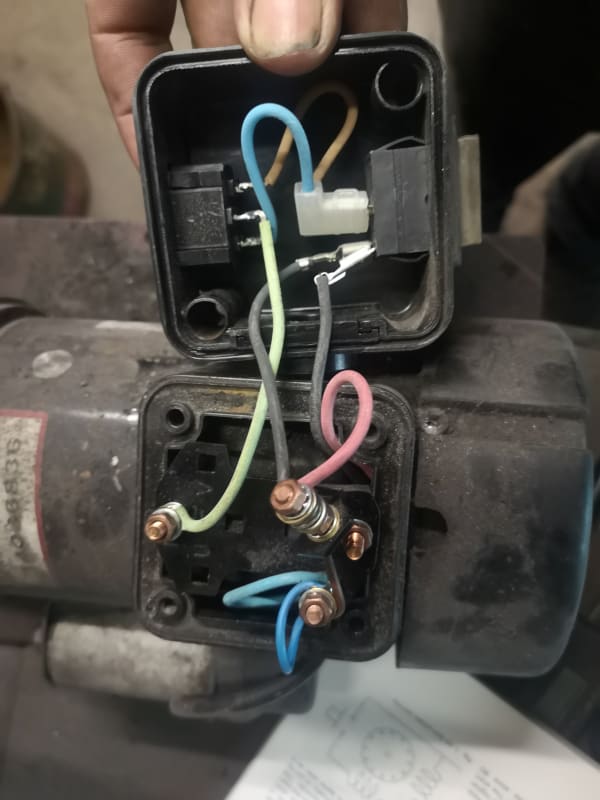I should mention that am in the UK so 240v.
We run small linishers for light production and also teaching- these have been 100% reliable until the last month. We unpacked and set up a brand new one and the belt jammed, a student left it on but stalled for a few minutes. We let it cool down and it seemed to run fine. But on listening closer we realised it now buzzes as it runs - and seems to get hot quicker. This is not bearings as as soon as it is turned off it spins down quietly again. Is a PSC with 12 UF capacitor, windings are roughly 10, 20 ohm.
I thought little of this until I started a project that involved trying to get this motor to run backwards ( I started with another silent running one). - not possible electrically as I couldn't split the common winding, so I reversed it in the casing. Unfortunately this meant spinning the switch and it wasn't symmetrical and shorted something when I first closed it. This blew a fuse but when everything was put back more carefully the motor still ran- except it is identical now to the buzzing one.
If I disconnect the capacitor on either, it will normally stall but will spin up and run either direction and silently- I haven't dared run them long enough to see if they get hot. Windings are identical on both off these damaged machines and I can detect no short to earth. If I put the capacitor wires together it is incredibly noisy and runs at about 1/4 speed. Didn't risk that for long.
My thought was the capacitor- but these test our OK, I replaced with a similarly rated ( no identical ones available at short notice)this makes no difference.
Does anybody have any idea what I have done and if it can be repaired? Motor casing says 370 w , 230v , 2.4a , 50hz, 2800 rpm, PSC S1 F INS , 12 UF 440V
We run small linishers for light production and also teaching- these have been 100% reliable until the last month. We unpacked and set up a brand new one and the belt jammed, a student left it on but stalled for a few minutes. We let it cool down and it seemed to run fine. But on listening closer we realised it now buzzes as it runs - and seems to get hot quicker. This is not bearings as as soon as it is turned off it spins down quietly again. Is a PSC with 12 UF capacitor, windings are roughly 10, 20 ohm.
I thought little of this until I started a project that involved trying to get this motor to run backwards ( I started with another silent running one). - not possible electrically as I couldn't split the common winding, so I reversed it in the casing. Unfortunately this meant spinning the switch and it wasn't symmetrical and shorted something when I first closed it. This blew a fuse but when everything was put back more carefully the motor still ran- except it is identical now to the buzzing one.
If I disconnect the capacitor on either, it will normally stall but will spin up and run either direction and silently- I haven't dared run them long enough to see if they get hot. Windings are identical on both off these damaged machines and I can detect no short to earth. If I put the capacitor wires together it is incredibly noisy and runs at about 1/4 speed. Didn't risk that for long.
My thought was the capacitor- but these test our OK, I replaced with a similarly rated ( no identical ones available at short notice)this makes no difference.
Does anybody have any idea what I have done and if it can be repaired? Motor casing says 370 w , 230v , 2.4a , 50hz, 2800 rpm, PSC S1 F INS , 12 UF 440V





